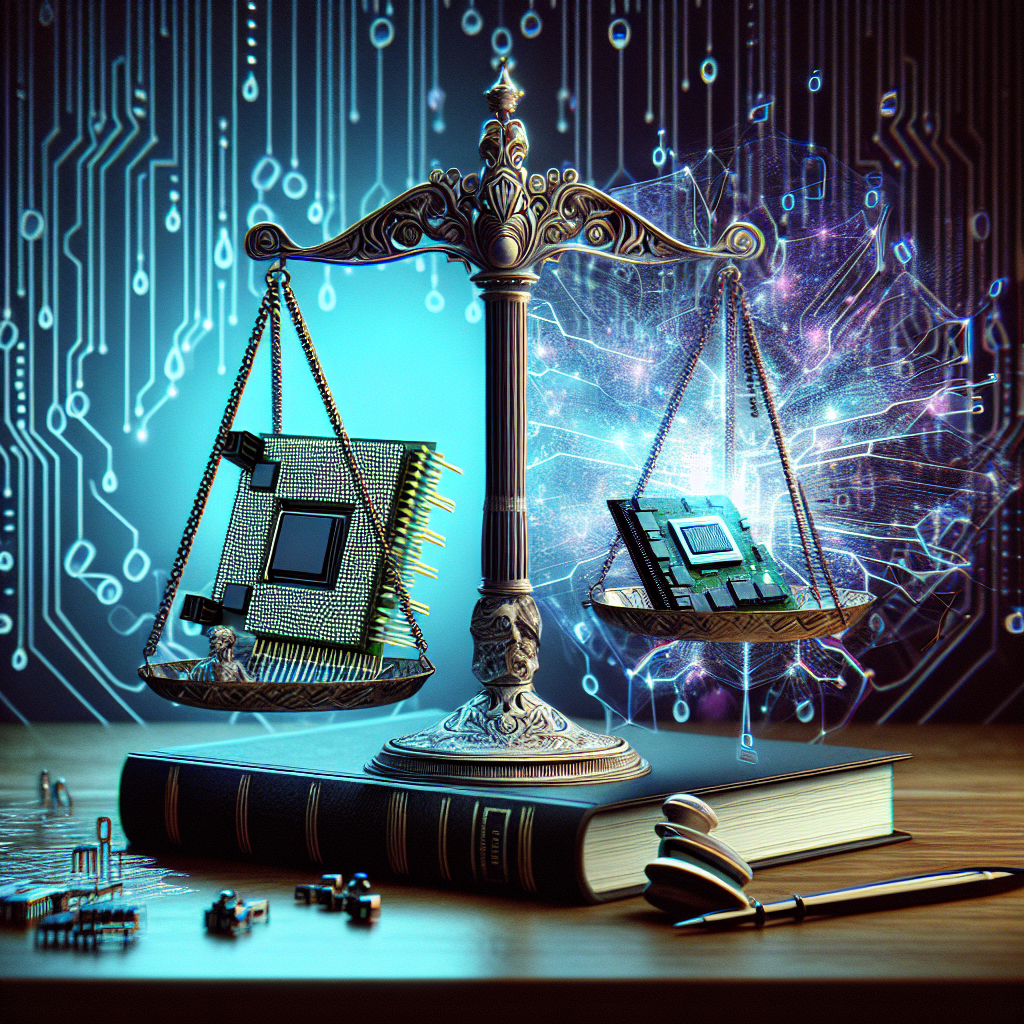Artificial Intelligence (AI) has revolutionized many industries, including the legal field. From analyzing contracts to predicting case outcomes, AI has the potential to streamline processes and increase efficiency in law firms. However, with this newfound technology comes a host of legal implications that must be navigated carefully. In this article, we will explore the legal implications of AI in law and provide guidance on how to navigate them.
Understanding the Legal Implications of AI in Law
1. Privacy Concerns: One of the biggest legal implications of AI in law is privacy. AI systems often require access to large amounts of data in order to function effectively. This data may include sensitive information about clients, witnesses, or even judges. Law firms must ensure that they have proper data protection measures in place to safeguard this information and comply with relevant privacy laws.
2. Bias and Discrimination: AI systems are only as good as the data they are trained on. If the data used to train an AI system is biased in any way, the system may produce biased results. This can lead to discriminatory outcomes in legal proceedings. It is important for law firms to regularly audit their AI systems to identify and address any biases that may exist.
3. Liability Issues: When AI systems make mistakes, who is responsible? This is a complex legal question that has yet to be fully answered. In some cases, the liability may lie with the creators of the AI system, while in others, it may fall on the law firm using the system. It is crucial for law firms to understand the potential liability issues associated with using AI in their practice.
4. Ethical Considerations: AI systems raise a number of ethical considerations for law firms. For example, is it ethical to use AI to predict the outcome of a case? Does this undermine the role of the lawyer as an advocate? Law firms must carefully consider the ethical implications of using AI in their practice and ensure that they are in compliance with relevant ethical guidelines.
Navigating the Legal Implications of AI in Law
1. Conduct a Privacy Impact Assessment: Before implementing an AI system in your law firm, conduct a privacy impact assessment to identify any potential privacy risks. This assessment should evaluate the data being used by the AI system, how it is being stored and protected, and who has access to it. By understanding the privacy implications of using AI, law firms can take steps to mitigate any risks.
2. Implement Bias Mitigation Strategies: To address bias in AI systems, law firms should implement bias mitigation strategies. This may include diversifying the training data used by the AI system, regularly auditing the system for biases, and incorporating fairness metrics into the system. By actively working to mitigate bias, law firms can ensure that their AI systems produce fair and unbiased results.
3. Establish Clear Liability Agreements: To address liability issues associated with AI in law, law firms should establish clear liability agreements with the creators of the AI system. These agreements should outline the responsibilities of each party in the event of a mistake or error made by the AI system. By establishing clear liability agreements, law firms can protect themselves from potential legal disputes.
4. Adhere to Ethical Guidelines: To navigate the ethical implications of AI in law, law firms should adhere to relevant ethical guidelines and codes of conduct. This may include guidelines issued by bar associations or professional organizations. By following ethical guidelines, law firms can ensure that their use of AI is in line with ethical standards and principles.
FAQs
Q: Can AI replace lawyers in the legal field?
A: While AI has the potential to automate certain tasks in the legal field, such as contract analysis or legal research, it is unlikely to replace lawyers entirely. Lawyers bring a unique set of skills and expertise to the table that AI cannot replicate, such as critical thinking, advocacy, and empathy.
Q: How can law firms ensure that their AI systems are compliant with privacy laws?
A: Law firms can ensure that their AI systems are compliant with privacy laws by conducting a privacy impact assessment, implementing data protection measures, and regularly auditing the system for compliance. It is also important to stay up to date on relevant privacy laws and regulations to ensure ongoing compliance.
Q: What steps can law firms take to address bias in their AI systems?
A: Law firms can address bias in their AI systems by diversifying the training data, regularly auditing the system for biases, and incorporating fairness metrics into the system. It is also important to engage with diverse stakeholders to identify and address potential biases in the system.
In conclusion, navigating the legal implications of AI in law requires careful consideration and planning. By understanding the privacy concerns, bias and discrimination issues, liability issues, and ethical considerations associated with AI, law firms can take steps to mitigate risks and ensure compliance with relevant laws and regulations. By conducting privacy impact assessments, implementing bias mitigation strategies, establishing clear liability agreements, and adhering to ethical guidelines, law firms can successfully navigate the legal implications of AI in law and reap the benefits of this transformative technology.

